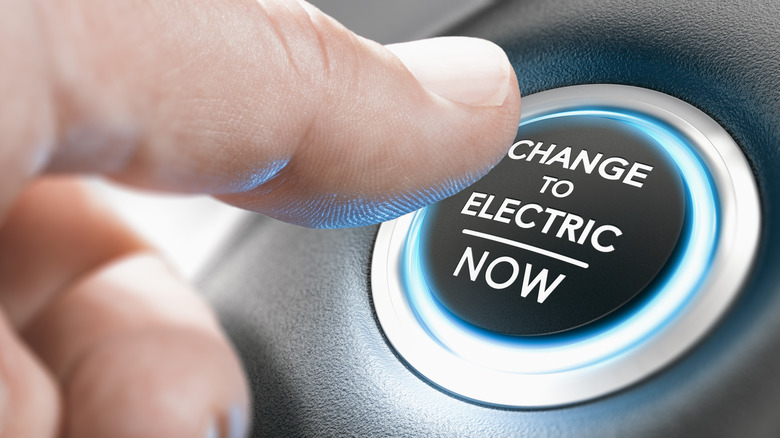The Tax Credits And Rebates That Come With Buying An EV
Governments around the world, in an effort to bring down carbon emissions and push for EV adoption, offer tax credits, rebates, and benefits to anyone who purchases a qualifying electric (and in some cases, hybrid) vehicle. On February 17, 2009, President Barack Obama signed the American Recovery and Reinvestment Act. The law put in motion the tax credits that are still today used in the U.S. when buying a plug-in EV.
While the law served to boost EV sales in the country, it has been criticized for its limitations. The law states that any EV model built by a carmaker that has sold more than 200,000 units is not eligible for the tax credit, which leaves Tesla and GM out of the game. Unfortunately, attempts to eliminate this "phase-out" condition haven't been successful. Additionally, new propositions aim to expand the tax credit.
In 2021, the Clean Energy Act for America, included in the Build Back Better Act of President Joe Biden, began its way across the Senate and Congress chambers. The Hill reported on April 22, 2022, that U.S. Secretary of Energy Jennifer Granholm believed the law would pass in Congress before November's midterm elections. Volt Equity explains that the act would increase the federal tax credit and remove the 200,000-vehicles-sold limit in an effort to put the brakes on Chinese EV sales in America. However, the law will not cover Tesla as the company does not employ unionized labor. Besides federal tax credits, states also offer local incentives, credits, and rebates.
Many states offer credits and incentives, too
The IRS explains that the federal tax applies to any vehicle purchased after December 31, 2009. The base for the credit is $2,500, but for every 5kWh the battery of the vehicle has, an additional amount is paid. New EV models, given their battery size and capacity, usually qualify for the full maximum of $7,500. Kelley Blue Book adds that the $7,500 in credit is not an instant benefit; rather, it is a credit that buyers can only use in the same year of purchase when they file their taxes to obtain tax discounts of up to $7,500. The credit only applies to new vehicles and not used cars. Leased vehicles do not apply. The vehicle needs to be used inside the country, must be bought for personal use, and not be intended for resale.
Additionally, every state offers state-level tax incentives, rebates, or benefits, including domestic charging discounts, free parking, and EV charging benefits. A state-by-state map offered by the U.S. Department of Energy reveals that California leads with 135 different laws and incentives. The Clean Vehicle Rebate Project of California allows those who buy or lease an EV to get $1,000 to $7,000 in savings. Tesla, due to price increases, is not eligible for this rebate. Those buying an EV should take advice from professional tax accountants regarding federal incentives, and search for the best benefits available in their state through official channels.

